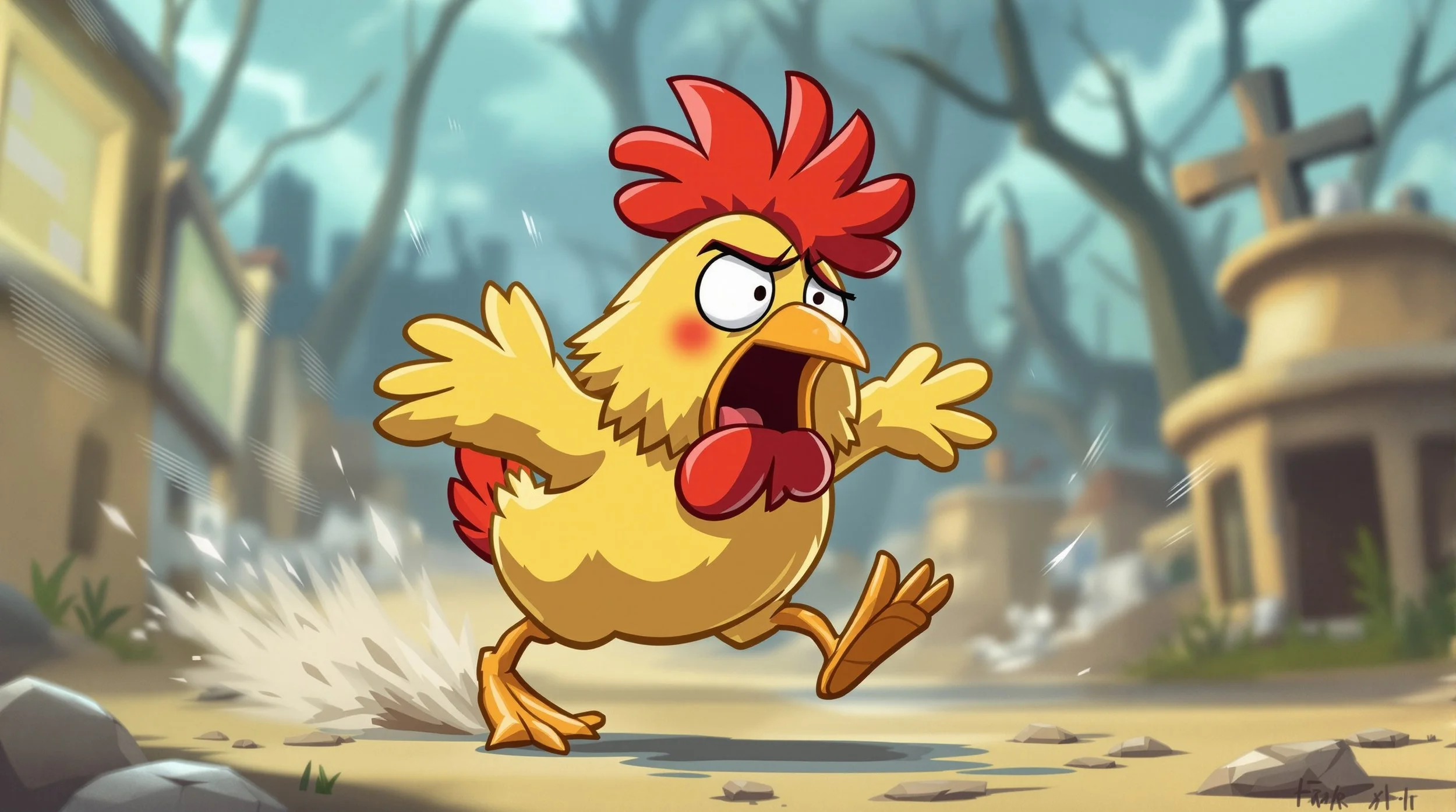Fox Holes
After three tours in Vietnam, Chris returned home with, not one but two, Purple Hearts. His family and friends expected the Chris who came home wouldn’t be the strong, gentle and wise young man that left for war years ago. Perhaps the horrors of war had changed him into one of those troubled souls who retreat from life and sit in dark rooms with only that thousand-yard stare and a bottle of whiskey. Or maybe fly off the handle in rage at attempts to communicate with him, and spending most of his time in the back of police cars as a result. But they were delightfully surprised. Like before he went to war, he was an active member of his church; he was still generous, kind and helpful. He always pitched in when help was needed.
Except for one thing.
Before the war, he never criticized anyone. But after his return, every now and then, someone would rub him the wrong way and he’d say, “I don’t want that guy anywhere near my foxhole.”
At first, there were those who thought a foxhole was a literal hole where foxes slept. Most, however, understood, either from watching war movies or having actual military experience that:
A foxhole is a hole in the earth that's used by a soldier as a small fort. From the safety of a foxhole, troops are protected somewhat against enemy fire. – Vocabulary.com
They also came to understand that Chris was making a judgement about people he couldn’t trust. Chris spent a great deal of time in situations where his life depended on the actions of others. It made sense that being a good judge of character was an essential survival skill in the military. And his judgments were eventually confirmed, through experiences, past and present, that he was right.
Chris was never a braggart nor one to gossip. But when he was asked about his skill in discerning character he talked about his experiences in Vietnam. “When the bullets are flying,” he said once, “and you’re scared and tired and filthy, that’s when a person’s real character comes out.”
He illustrated his point with stories about how some men ran. They ran away without regard to their safety, the safety of their fellow soldiers or the orders they had been given. Some were later found dead, and some were never found.
Holding his anger under control he told of one man who shot his foxhole mate and hid under his body.
He told about those that froze. They just stood there and stared blankly into space, or they threw themselves on the ground and did nothing. It was as if they believed freezing somehow hid them from the battle, like a horse wearing blinders; if they couldn’t see danger, the danger didn’t exist. He called it “hiding in plain sight” and explained that it brought results even worse than for those who ran.
He told stories about how most men did their duty and fought even if it meant their own death. Jesus said something about this in John 15:13.
“Greater love has no one than this, than to lay down one’s life for his friends”
When Chris told those stories he always paused for a moment to compose himself, fighting back tears, “That’s what good character is”, he said. “In foxholes, they fight.”
The most important part of having a good character is conquering fear and making whatever effort or sacrifice needed to fulfill duty.
Fight, Flight and Freeze
Chris’s stories were examples of the fight, flight or freeze response to stress. Most of us will never experience actual combat, but we will still find ourselves in a kind of foxhole at one time or another. These foxholes are not the earthly ones dug in the ground, but spiritual ones. The bullets aren’t real ones fired from a gun, but they are spiritual ones fired in stressful situations. From Ephesians 6:12, as Christians, we know that these battles are “not against flesh and blood but against powers and principalities.”
They may not be life threatening but are stressful enough to trigger the fight, flight or freeze response. These are things like losing a job, marriage/family trouble, financial difficulties or anything that puts at risk our self-esteem, pride, or threatens the people or things we love. They are spiritual battlegrounds where we carry out our duties as family members, coworkers, neighbors, evangelists, apostles, teachers, pastors, or prophets no matter the cost to our own person.
Like a foxhole dug by a soldier, spiritual foxholes are places where we experience the flight, fight or freeze response. Here are some ways people respond.
Flight
“The wicked flee when no one pursues, but the righteous are bold as a lion.” — Proverbs 28:1
“For God gave us a spirit not of fear but of power and love and self-control”. — 2 Timothy 1:7
Have you ever seen those Southwest Airlines commercials that use the tagline, “Wanna get away?”. They’re funny. Something embarrassing happens to a someone and the narrator suggests that one way to deal with it is to buy a plane ticket and run. This is, of course, an intentional use of humor.
However, it’s a serious thing. Flying (as in running away), especially as a first resort, doesn’t deal with the situation. People abandon those they care for, their ministry and often their duties. In addition, the battle will still be there when they return. When having trouble at work, instead of facing the trouble, working out the difficulties, they quit. Troubles with neighbors or friends might cause them to pack up all their kids, pets, and belongings and move to another town rather than trying to resolve them.
Hiding can also be away of flying. One example of this is to cast blame on someone else so they face the trouble instead. Throwing others under the bus is a despicable act, forcing others to face the consequences they didn’t incur. This is the same as shooting the other man in the foxhole and using them for cover.
The problem here is that we are often responsible for at least some of the problems we face. By leaving as a first resort, we never learn to grow or improve. Not addressing these battles, means they will probably follow us wherever we go.
We must always, pray and figure out how much of the battle we are fighting is our responsibility and act accordingly.
Freeze
Blessed is the man who endures temptation; for when he has been approved, he will receive the crown of life which the Lord has promised to those who love Him. — James 1:12 (NKJV)
But as for the cowardly, the faithless, the detestable, as for murderers, the sexually immoral, sorcerers, idolaters, and all liars, their portion will be in the lake that burns with fire and sulfur, which is the second death. — Revelation 21:8 (NKJV)
Freezing, as Chris pointed out, is just hiding in plain sight. Freezing does not take away the threat. It still exists and can cause pain to them and those who count on them.
Some of the ways people freeze is by indulging in drugs, alcohol, pornography, or gambling. These sins make the users feel better for a little while but like flying, they don’t help with the battle at all. Like the horses blinders, freezing just makes a person feel like the battle isn’t really going on.
Fight
I have fought the good fight, I have finished the race, I have kept the faith.— 2 Timothy 4:7 (NKJV)
Fight the good fight of faith, lay hold on eternal life, to which you were also called and have confessed the good confession in the presence of many witnesses. — 1 Timothy 6:12 (NKJV)
Fighting spiritual battles consists of taking responsibility for our role in the battle, then dealing with the consequences in a Christian way, by being there for those who count on us, making sacrifices to help and protect others and by praying and fasting. When we have an obligation to fight, we stay in the battle and do our best until it is finished, win or lose. We need to stay alert like the Nehemiah (4:15-17). This is the essence of a good character. Those who built on the wall, and those who carried burdens, loaded themselves so that with one hand they worked at construction, and with the other held a weapon. (NKJV)
More About Chris
Chris was a Christian, but he was also a Navy Seal. https://en.wikipedia.org/wiki/United_States_Navy_SEALs. The SEALs were and are an elite fighting unit, established in 1962 just before the Vietnam war. They were often dropped off at the mouths of rivers or the jungle far behind enemy lines where they carried out special operations like disrupting supply lines, carrying out assassinations and performing difficult reconnaissance missions. They spent weeks or months in their operational zones using survival and combat skills.
The special thing about Chris was that he wasn’t originally a SEAL. He joined the Navy to become a Corpsman. A Corpsman is the same as an Army Medic but in the Navy. Typically, Corpsmen are assigned to ships as medical personnel, to Marine units or, after the Vietnam War started, to SEAL teams.
Most people would think that a medic wouldn’t be a fighter, but because the SEAL units were small, 6 to 10 men, their survivability depended on all members of the unit being able to fight and fight well. So, Chris not only had to fight in his own foxhole but, because he was a Corpsman, he had to go from foxhole to foxhole to help other members of his unit fight in theirs.
Christian Duties
But I believe that his character - his sense of duty - is a good model for Christians to emulate. We need to fight hard in our spiritual foxholes for our families and those who count on us according to Christian principles and fight well enough that we can then go to other foxholes help others fight their battles.




